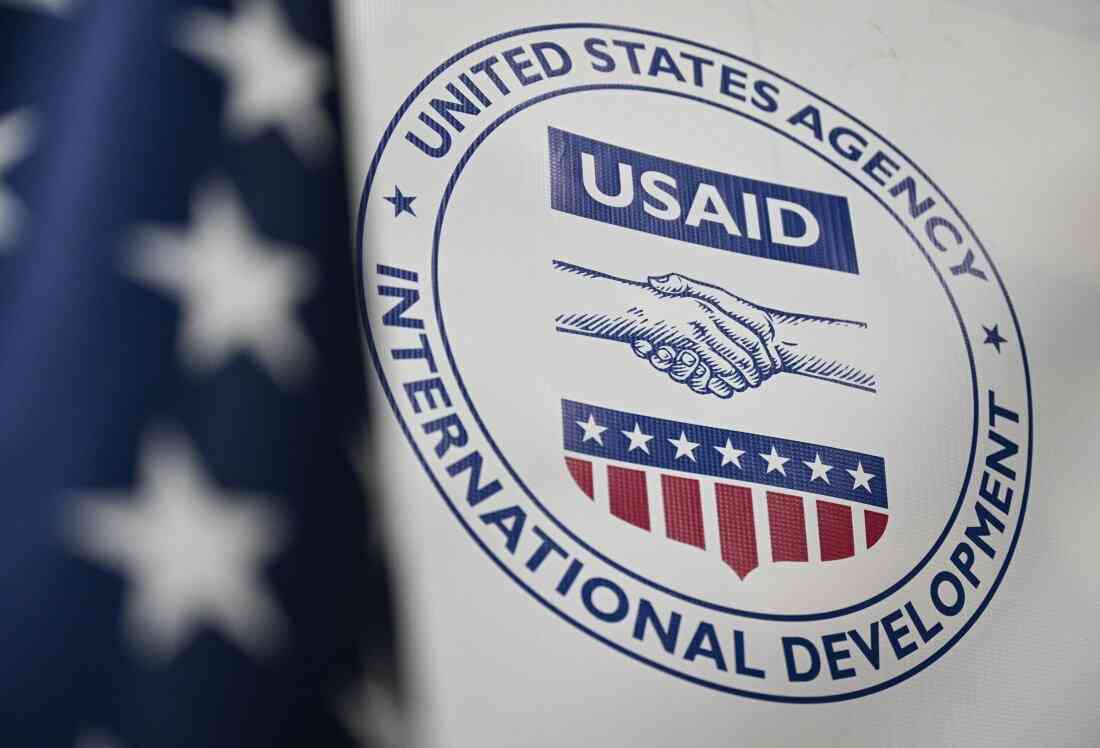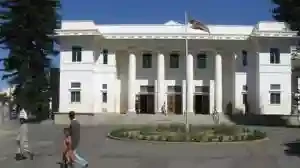
UNCERTAINTY has gripped thousands of employees in the non-governmental organisation (NGO) and civil society organisation (CSO) sectors after they were told to go home following United States President Donald Trump’s issuance of an executive order to freeze foreign aid for 90 days.
Zimbabwe has thousands of NGOs and CSOs across a range of sectors, with the majority of them getting huge chunks of their funding from the US.
The categories that have been severely affected are humanitarian aid, service organisations and political governance.
According to the 2019 Labour Force and Child Labour Survey conducted by the Zimbabwe National StatisticsAgency, the NGO sector accounts for 1,2% of the total employed persons in the country, which translates to an aggregate figure of 17 643 formal jobs.
The figure could, however, be larger amid indications that the sector was the second largest employer in Zimbabwe after government.
Employees who spoke on condition of anonymity yesterday told NewsDay that they were uncertain about their continued employment after Trump’s 90-day review.
“We are in a difficult position. We don’t know what will happen after the 90 days,” one of them said.
“I also do not know where I will get money for rentals since our salaries were also frozen.”
- Mavhunga puts DeMbare into Chibuku quarterfinals
- Bulls to charge into Zimbabwe gold stocks
- Ndiraya concerned as goals dry up
- Letters: How solar power is transforming African farms
Keep Reading
Zimbabwe Nurses Association secretary-general Enock Dongo told NewsDay that nurses, who were working at local clinics under the US President’s Emergency Plan for Aids Relief (PEPFAR) programme, have been told not to come to work.
“We have members who have been working at local clinics who have been told not to report to duty today (yesterday).
“Those people are under emotional stress and also the patients who were waiting for them are affected,” he said.
“What the Trump administration has done is very disrespectful. You cannot just wake up and tell people not to come to work without notice.
“Even if the Zimbabwean government wants to chip in, it needs to prepare first. Africa should wake up and not rely on Western funds.”
Most of the workers were told to surrender vehicles and gadgets belonging to the NGOs.
Crisis in Zimbabwe Coalition (CiZC) director Blessing Vava said it was high time the country and the NGO sector came up with ways to deal with national problems.
“I think it is an opportunity for us to go back to the basics and build organic movements, where voluntarism and sacrifice are at the centre,” he said.
“Trump is doing what he is doing for his country and the American people.
“We are Zimbabweans and can never be American, so let’s focus on fixing our problems instead.”
The US embassy in Zimbabwe issued a statement confirming that the executive order was now in effect affecting aid programmes in the country.
The embassy noted Zimbabwe’s recent progress in combating HIV, noting that the country has achieved the global 95/95/95 targets — a benchmark for HIV testing, treatment and viral suppression.
However, the embassy called on government to take greater responsibility for sustaining these gains.
“They urgently need to be focused on buying antiretroviral therapy (ART) and getting nurses in clinics. They can do this,” the statement read.
Meanwhile, stakeholders in the health sector have expressed concern over massive reliance on donor funding as anything can happen leaving the masses in danger.
Community Working Group on Health executive director Itai Rusike said the consequences would be catastrophic to patients and communities in Zimbabwe that depended on US support for lifesaving interventions as they would face disruptions to critical services.
“It is risky and unsustainable for a country to depend substantially on external partners as donors can withdraw financial support anytime should their interests shift for some reason or other,” he said.
“It is very sad that when a country is highly dependent on external aid, health priority in government spending tends to fall in line with increased aid.
“Development assistance for health has crowded out government resources and created donor dependence.”
Health expert Martha Tholanah said the executive order was a wake-up call for Zimbabwe.
“Having such panic means our reliance on foreign funding is too heavy. We need more domestic resources for health from the national Treasury,” she said.
“Partners should complement the government, not the other way round. I hope we get our support for treatment sorted such that we never have to be in such distress when a foreign partner decides to withdraw their support.”
Approximately 1,2 million people in Zimbabwe are on HIV treatment and around 90% of HIV-positive pregnant women receive ART.
The developments mean children are under the risk of contracting HIV if mothers stop taking their medication and many more people will be affected given the state of the health sector in Zimbabwe.
By the end of 2023, the US had poured in over US$300 million in active programmes in Zimbabwe, according to the United States Agency for International Development foreign aid portal.
Finance minister Mthuli Ncube has indicated that the government will fund the gap left by the US through tax.










